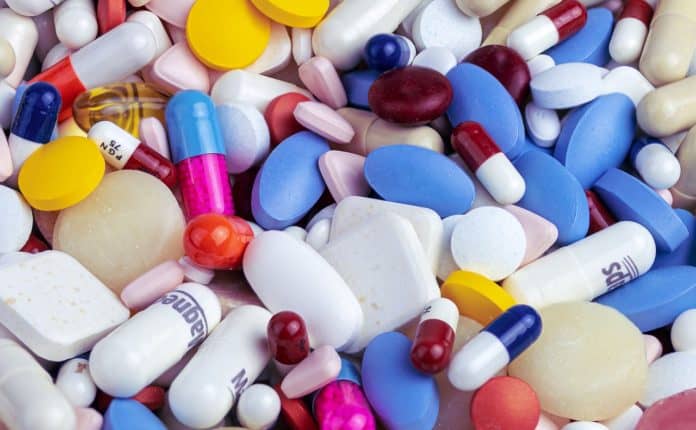Last Updated on September 27, 2020 by The Health Master
Even as the government hopes to see a tremendous response for its production linked incentive (PLI) scheme for greenfield bulk drug manufacturing projects, the domestic pharmaceutical industry fears that the incentives alone may not be enough to ward off Chinese imports that turned manufacturing of several key bulk drugs unviable in the first place.
“The scheme seems to be encouraging and there is a possibility that people will come forward with a positive state of mind. But, apprehensions remain. First of all, there is a very strong chance that China may dump these products at a much lesser price once India starts production. Unless countered with very quick anti-dumping measures, it may turn the production of such items unsustainable for Indian industry. There is a need for a written assurance from the government that quick action by way of anti-dumping investigations and anti-dumping duty will be taken in such cases” says BR Sikri, Chairman of Federation of Pharma Entrepreneurs (FoPE).
He said concerns have been flagged and the government is seriously considering the industry proposal to provide additional protection. The PLI package announced in July for 53 bulk drugs (raw materials for medicine production) offers financial incentives to domestic manufacturers based on sales for 41 specific products (which cover all 53 bulk drugs that are heavily import-dependent) in a graded manner for six years.
The government will select two to four companies for each product, depending on the bids manufacturers offer. The deadline to apply is November end.
Sikri also said the industry is doubtful if the entire quantum of incentive announced by the government will be available to the manufacturer due to conditionality attached to the scheme. “Though the government is saying there is a 10 percent incentive for chemical synthesis products and 20 percent incentive for fermentation-based products, the actual incentive for at least some products maybe 4 percent or less,” Sikri said.
Also read: NPPA steps in to cap price of Medical Oxygen
“For instance, the current market rate of Meropenem, one of the products in the list, is Rs 68,000 per kg. The scheme stipulates that the industry sets up a unit of 10-tonne annual capacity to avail concessions under the scheme. Theoretically, if I produce and sell 10 tonnes of Meropenem, my turnover is going to be Rs 68 crore annually. Hence, according to the scheme, I am eligible for 10 percent of the turnover or Rs 6.8 crores as an incentive,” Sikri said.
He added that it’s where it hurts. “The fine print of the PLI scheme puts a limit for incentive, which is either Rs 2.5 crore or 10 percent of the turnover, whichever is less. There are many products where the issue is similar. It erodes the attractiveness of the scheme,” he adds.
The industry is also worried that the sale price (based on which the cost calculation happens) remain frozen upwards once you quote a price at the time of applying for the scheme. “Tomorrow, if the price goes down, the government will give less incentive, but if it goes up, the incentive will continue to be decided based on the declared price,” he said.
This is also a problem as the cost of inputs remains dynamic, he added. “How can I factor in the changes in chemical prices, other inputs, power tariffs, manpower cost, and economic circumstances of the future while quoting the price? In short, there are impractical and unrealistic demands too. The overall enthusiasm will receive a big boost if the government looks at such operational issues,” Sikri said.
According to FOPE Chairman, the existing manufacturers have the capacity and technology to produce some of these products on the list immediately. “All that the government needs to do is put a condition that whatever such companies are manufacturing today, that should not be discontinued. A declaration that the company is producing so and so products…so and so capacity…and it will continue. Any additional capacity within the existing infrastructure, used for the production of the items in the PLI list, should be incentivised. Among the chemical synthesis products, 60 to 70 percent products can be manufactured from tomorrow if that happens,” he said.
Sikri points out the members of apex industry associations like IDMA (Indian Drug Manufacturers Association) and BDMA (Bulk Drug Manufacturers Association) have informed that they are willing to start production. However, it is not viable today because they can’t match the costing of Chinese imports.
“The PLI scheme, no doubt, is a timely decision and Atma Nirbhar Bharat scheme will give a chance to our industry to shine. The overall industry seems to be happy, it’s just that if the government can give incentives for existing manufacturers, India’s self-reliance in bulk drugs will improve tomorrow itself,” he adds.
The Health Master is now on Telegram. For latest update on health and Pharmaceuticals, subscribe to The Health Master on Telegram.


